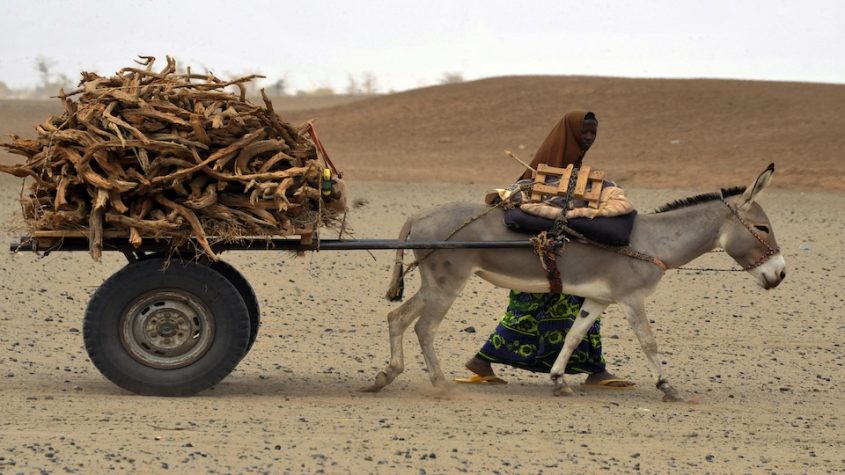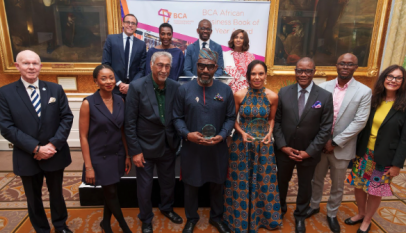African Union Donkey Skin Trade Ban Laudable but Doubt, Pessimism Cloud Implementation
The African Union (AU) heads of state ratified a motion proposing a 15-year ban on the donkey skin trade on February 18 which could go a long way in protecting African donkeys, but there is no timeline or mandate that requires African countries to implement the new regulation.
Doubt and pessimism cloud the ban’s enforcement due to the complicated nature of the way many African countries approach implementing such regulations. It is important to note that more than half of the estimated 1.3 million donkey hides China imported last year came from AU member countries, showing the urgent need for laws to protect these animals that are essential for subsistence farmers.
Despite limitations on implementation, stakeholders say the move by the AU is a major boost to the efforts against donkey poaching, which threatens the existence of the animals and families that rely on them.
Jude Riziki, who works with donkey owners across Kenya, said that if the ban is successfully implemented and enforced, it will complement their efforts at the Kenya Network for Dissemination of Agricultural Technologies (KENDAT) to curb donkey poaching in East Africa.
While China relies on donkey skin imports, there is no reliable data on how many hides are imported from Africa and other parts of the world. The huge demand for donkey hides has prompted a dramatic plunge in the animal population worldwide. In 2016, for instance, Kenya licensed four abattoirs that had a capacity of slaughtering 1, 200 donkeys daily. If this was sustained, the country’s entire donkey population of 1.8 million then would be decimated in less than five years.
Poaching and the illegal sale of donkey products are still prevalent in Kenya. Riziki expressed concerns that criminal cartels active in the illegal trade may corrupt the system challenging the ban’s implementation. Even though Kenya has laws on animal welfare, some are easily challenged in court, where the accused parties are freed on technicalities to continue with their illegal activities.
Worth More Dead in China Than Alive in Africa
She added that when a donkey is stolen, it cripples the family that depends on it for their livelihood. If unable to replace the animals, the families are forced into poverty, risking their ability to educate, feed, and house their children.
In Africa, a donkey is worth more alive than dead, but in China, the skin is much more valuable.
Donkey hides are used to produce a gelatin that’s used to manufacture a traditional Chinese medicine (TCM) called ejiao, which is widely believed to enrich the blood and have anti-aging properties – even though there is no scientific evidence that ejiao delivers all these benefits, it remains popular nonetheless.
This popularity means that donkey skin source markets, and likely many in Africa, despite the new ban, will continue to supply China’s ejiao industry even as some TCM producers, like Dong-E-E-Jiao, said the AU ban will not impact its business. There was no explanation of how the company would sustain the business bearing in mind that currently, there aren’t enough donkeys in China since the domestic population collapsed by more than 70% since 1992.
By 2020, the global donkey population stood at 53 million, two-thirds in Africa. Using the estimated human population in Africa, simple math shows that one donkey serves at least 37 people, making it a critical resource for the continent’s economy.
With this reality, more needs to be done to protect the African donkeys. Implementing the ban is complicated due to factors like individual countries’ law-making and application processes of such AU regulations, corruption, and the fact that there is no mechanism to enforce the ban in the Union’s member countries.
“The ban is an important move to halt the declining donkey population on the continent but for it to work, AU member states must commit to instituting task forces committed to ending the illegal donkey skin business,” said Adam Alqali, president of the Afrikan Youth Business Council (AfYBC) which closely works with the AU’s trade departments, including the AfCFTA.
He added that if corruption is not checked, poaching and illegal slaughter of donkeys will continue even when member states go back and create local laws to domesticate the ban.
“We must see a commitment from people, not just in government but all who rely on the donkey as a source of livelihood, to work alongside international animal rights organizations to ensure that corruption does not prevent the implementation of the ban by member states,” said Alqali.
The donkey skin trade ban has elicited reactions from across the world. Alqali said that China can support enforcement by taking a similar approach to ivory trafficking, which helped slow down elephant poaching in African countries. With the ejiao business having exhausted domestic donkeys, China may need ‘donkey diplomacy’ in Africa.
This article was originally published on the China Global South Project (CGSP).
















